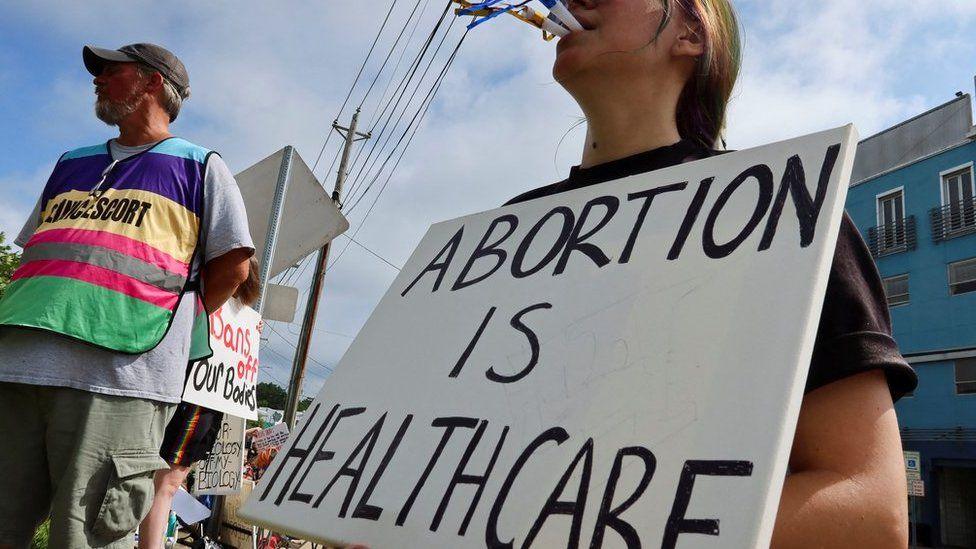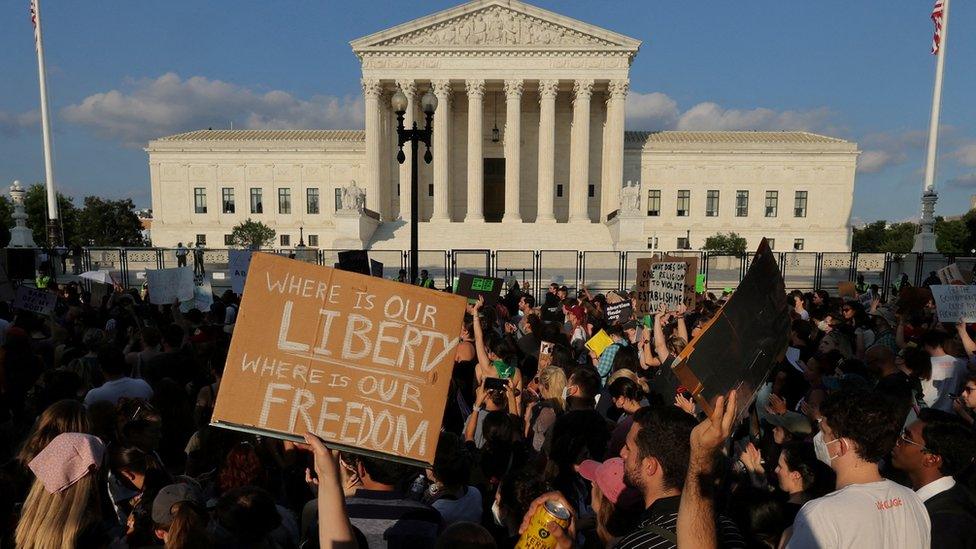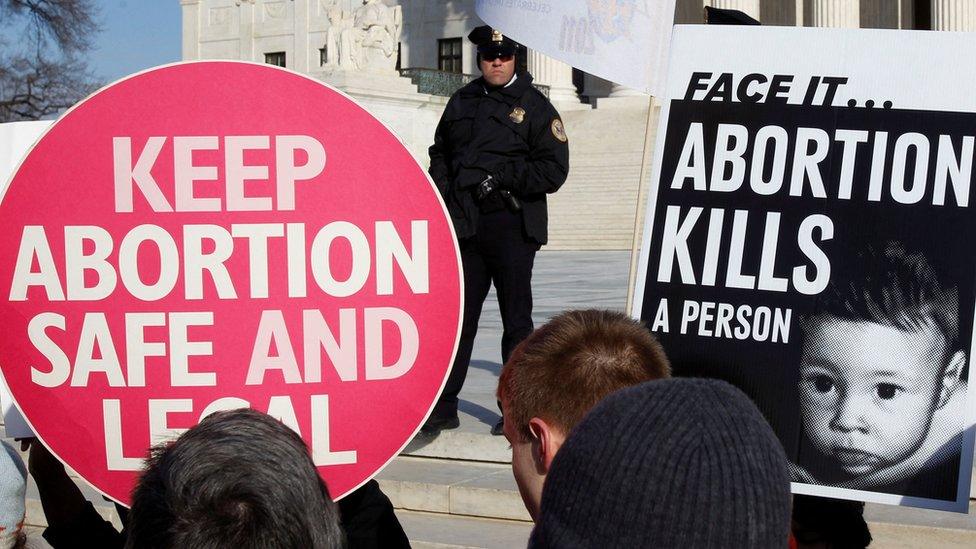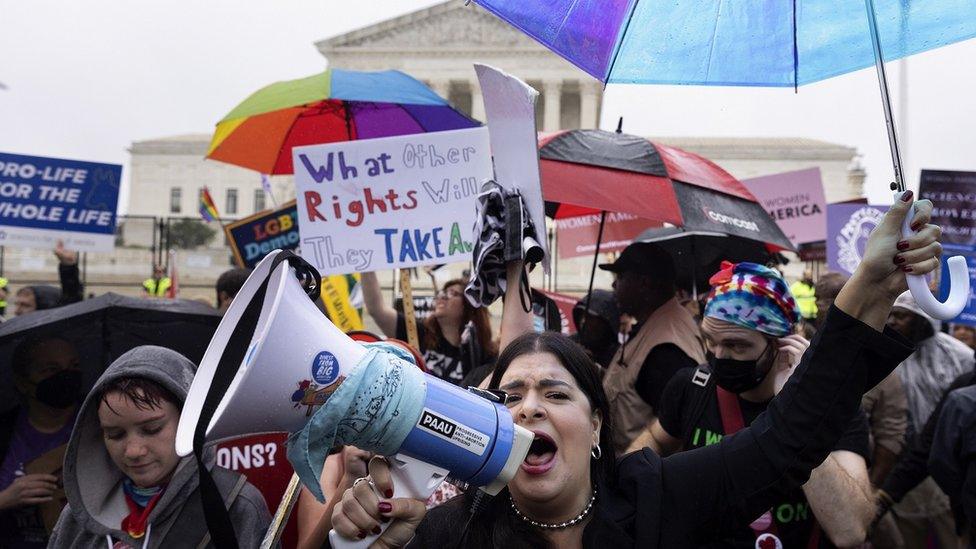Abortions stopped at Mississippi's last clinic as trigger ban enacted
- Published

The only abortion clinic in Mississippi has shut as a near-total ban on the procedure takes effect in the state.
Jackson Women's Health Organization, the clinic at the heart of the US Supreme Court case that reversed Roe v Wade, stopped giving abortions as a "trigger law" comes into force following the decision.
The ruling has left individual states to decide on abortion rights.
Battles over bans it triggered are now playing out in courts around the US.
In Mississippi, the state ban that has been triggered prohibits abortions at any point of a pregnancy, forcing Jackson Women's Health to stop giving the procedure.
On Wednesday, its last day of operations, pro-choice and anti-abortion clashed outside the clinic as it sought to see as many patients as possible before ending its services.
"It was crazy busy, for obvious reasons," Dr Cheryl Hamlin, who worked at the clinic, told the BBC. "It was definitely a full day, and it was emotional on the way out."
"Today is a little bit surreal. I don't even know how I'm feeling right now," she said.
Outside the clinic, tensions ran high. Defiant signs were left by volunteers who had helped escort some of the 60 or so patients who came in on the last day for medical and surgical procedures.
Inside a US abortion clinic in its final days
Dr Hamlin said she was concerned that potential patients may now seek unsafe, unregulated abortions, or continue with potentially high-risk pregnancies that they may have otherwise aborted.
Anti-abortion supporters, however, celebrated outside the clinic with music and shouted prayers. Some carried placards that read: "Love God with all your heart, soul, strength and mind."
The Mississippi "trigger law" was passed in 2007 and written to go into effect ten days after a Supreme Court reversal of Roe v Wade. The law carries penalties of up to 10 years in prison for violations, and provides exceptions only in cases of danger to the life of the mother or rape that has been reported to law enforcement.
The law was due to come into effect on Thursday, after a last-minute effort to block it failed.
Some 13 states, primarily in the US south and mid-west, had similar laws designed to come into effect after Roe v Wade - which guaranteed a constitutional right to abortion - was overturned.
At least nine states have instituted a near-total ban, with the only exception being danger to the life of the mother.
Other states are now scrambling to protect abortion access amid legal challenges, while clinics are struggling to navigate patchworks of new laws.
States where abortion will remain legal are taking measures to protect those travelling from other jurisdictions. For instance, the Democratic governors of Colorado and North Carolina on Wednesday issued executive orders to protect abortion providers and patients from extradition to places that have banned the practice.
Meanwhile, one of the largest abortion providers in Texas, Whole Woman's Health, has said it is planning to move its operations to New Mexico, and has started a fundraising effort to help with the costs of moving equipment and supplies.
Related topics
- Published5 July 2022

- Published2 July 2022

- Published6 July 2022
